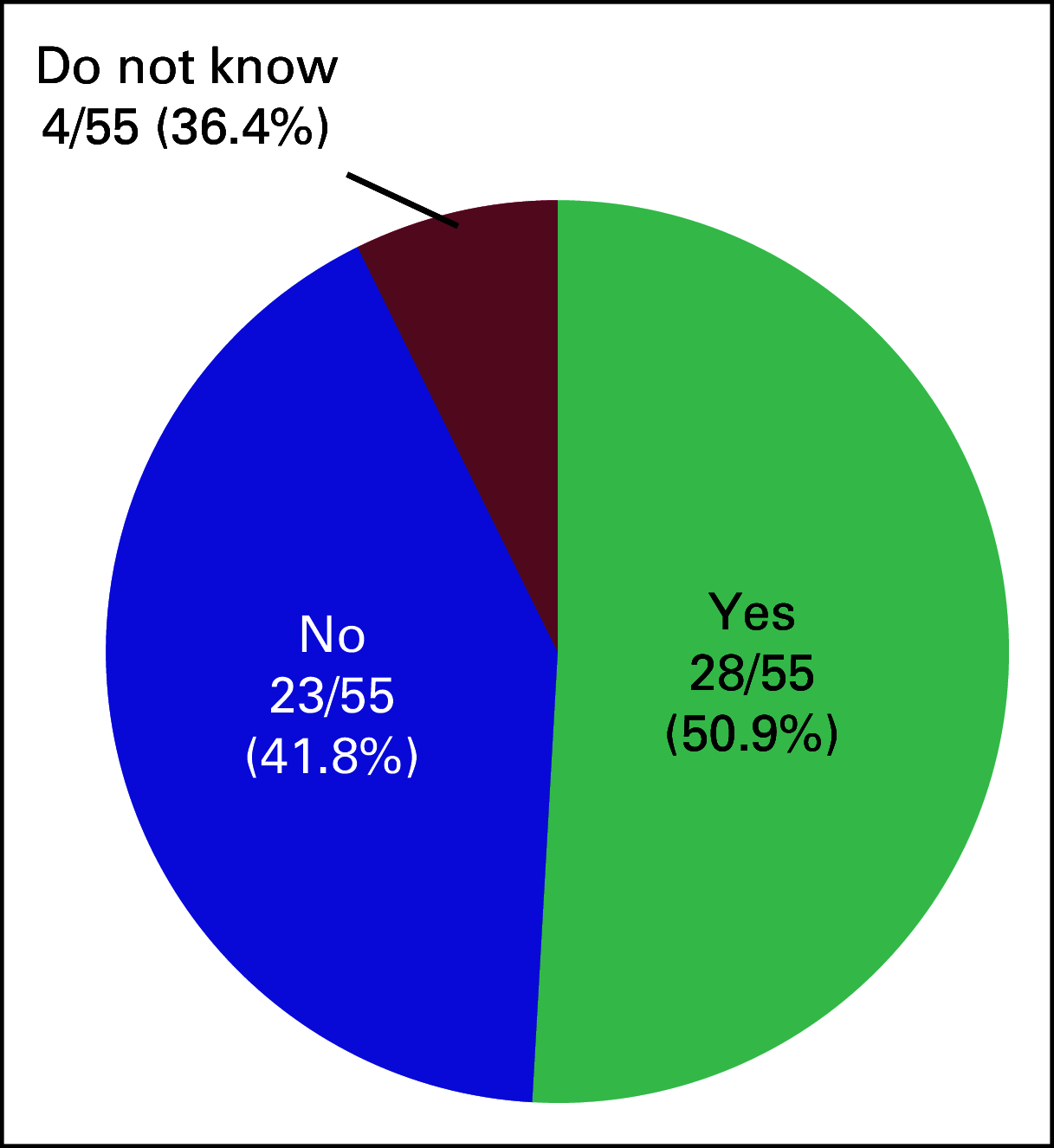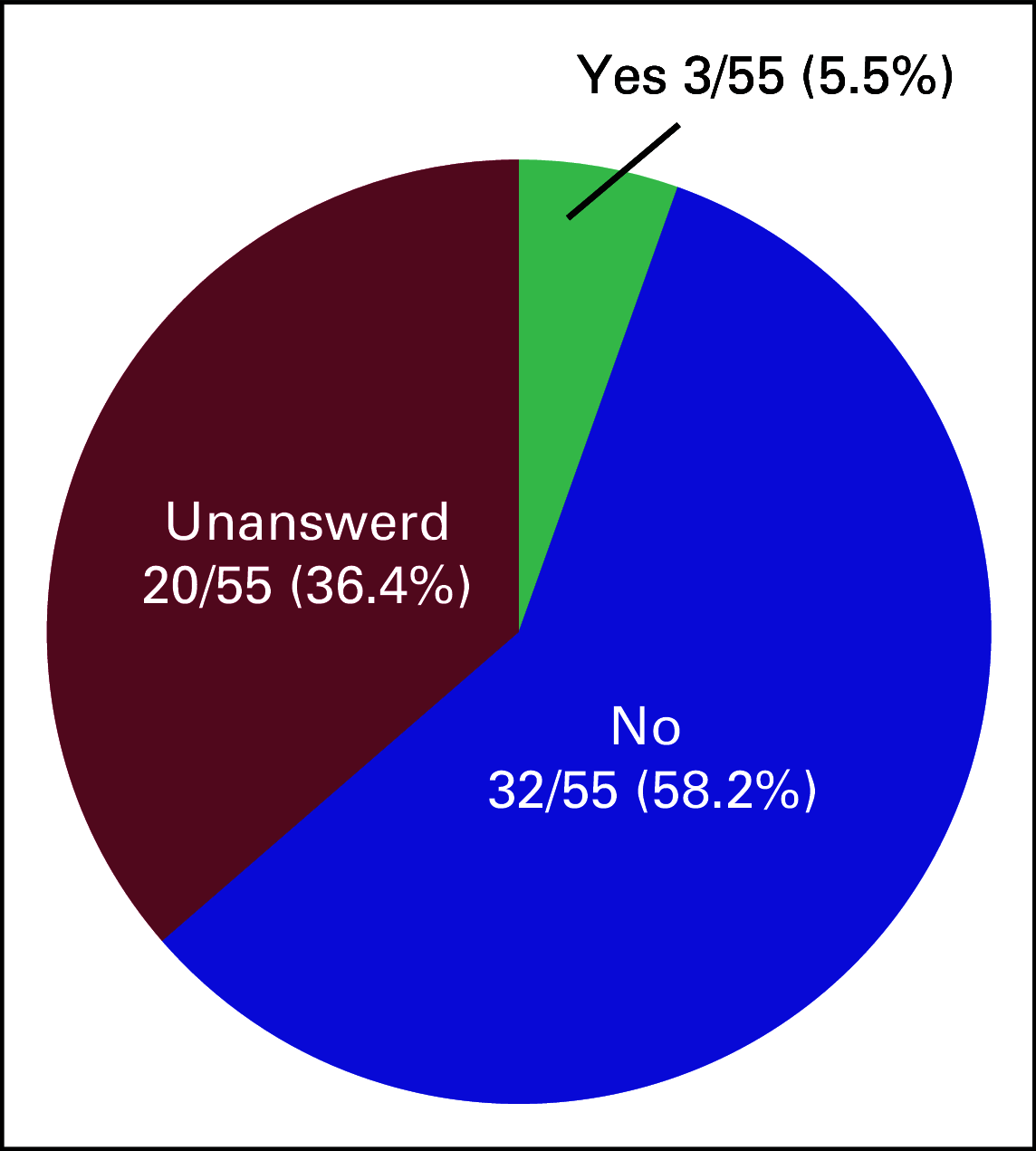Study of the Awareness of Adoption as a Family-Building Option Among Oncofertility Stakeholders in Japan
- PMID: 32259157
- PMCID: PMC7853874
- DOI: 10.1200/JGO.18.00043
Study of the Awareness of Adoption as a Family-Building Option Among Oncofertility Stakeholders in Japan
Erratum in
-
Erratum.JCO Glob Oncol. 2022 Mar;8:e2100417. doi: 10.1200/GO.21.00417. JCO Glob Oncol. 2022. PMID: 35275737 Free PMC article. No abstract available.
Corrected and republished in
-
Study of the Awareness of Adoption as a Family-Building Option Among Oncofertility Stakeholders in Japan.JCO Glob Oncol. 2020 Mar 2;6:350-355. doi: 10.1200/GO.22.00009. eCollection 2020. JCO Glob Oncol. 2020. PMID: 35275743 Free PMC article.
Abstract
Purpose: The oncofertility decision tree was developed by the oncofertility consortium as a tool to support healthcare professionals and patients through the complicated process of deciding the most appropriate fertility preservation strategy for patients with cancer. Various strategies include oocyte retrieval, oocyte donation, use of a gestational carrier and adoption. However, differences in the cultural and legal landscape present serious barriers to utilizing some of these strategies in Japan.
Patients and methods: We surveyed Japanese oncofertility stakeholders including 60 cancer survivors, 27 oncology facilities, 78 reproductive medicine facilities and 15 adoption agencies by a questionnaire to characterize awareness among oncofertility stakeholders in Japan about parenting options including adoption to inform work to establish guidelines for decision-making by cancer survivors in an oncofertility.
Results: Our results indicate that oncologists and reproductive endocrinologists in Japan have an insufficient understanding of adoption that prevents them from adequately informing their patients. Japanese cancer survivors self-describe a lack in confidence in finding a suitable partner and raising a child. Contrastingly, of the 9 adoption agencies which responded, no agency included being a cancer survivor as a criterion for disqualification and 4 of 9 (44%) adoption agencies reported at least 1 adoption to a cancer survivor in the last year.
Conclusion: Our work demonstrates that a cancer survivor's medical history itself is not a hurdle to adoption and investment in patient-provider education could be a viable strategy to improve the utilization of adoption as a fertility preservation strategy in Japan.
© 2020 by American Society of Clinical Oncology.
Conflict of interest statement
The following represents disclosure information provided by authors of this manuscript. All relationships are considered compensated. Relationships are self-held unless noted. I = Immediate Family Member, Inst = My Institution. Relationships may not relate to the subject matter of this manuscript. For more information about ASCO's conflict of interest policy, please refer to
No potential conflicts of interest were reported.
Figures



References
-
- Donnez J, Dolmans MM, Demylle D, et al. : Livebirth after orthotopic transplantation of cryopreserved ovarian tissue. Lancet 364:1405-14102004 - PubMed
-
- The Oncofertility Consortium : http://oncofertility.northwestern.edu
Publication types
MeSH terms
LinkOut - more resources
Full Text Sources
Medical

